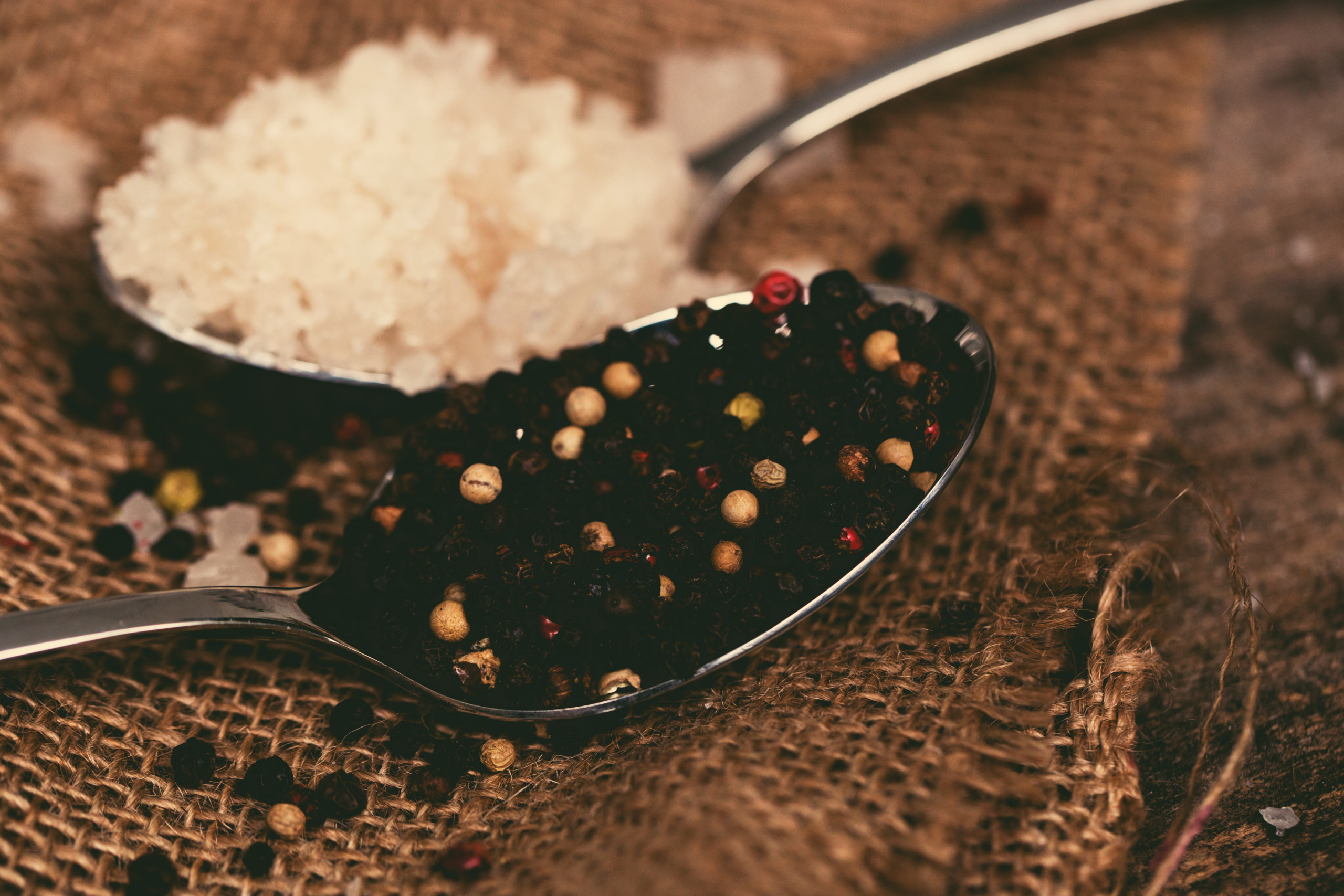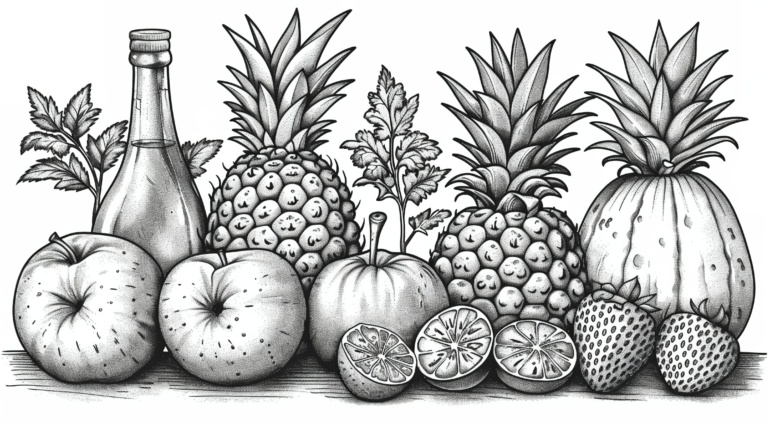Title: “Spice Up Your Life: The Surprising Power of Black Pepper in Twi”
If you’re like most people, the idea of black pepper doesn’t exactly send you into a fit of excitement. I mean, it’s just… pepper, right? A little shaker on the table, always there, rarely given much thought. But what if I told you that black pepper isn’t just the humble seasoning we sprinkle on our food? What if I told you that this unassuming spice holds a wealth of cultural and linguistic significance, particularly in Ghana? Yep, we’re about to dive into the spicy world of black pepper, or pepper as it’s known in Twi.
Now, let me tell you: I was once like you. I threw a little bit of black pepper on my food and moved on with my day. But as I started digging deeper into the intricacies of Ghanaian culture, I learned that black pepper in Twi is far more than just a seasoning—it’s a symbol, a tradition, and surprisingly, a key player in the emotional landscape of many Ghanaians.
So, buckle up. We’re about to embark on a flavorful journey where we discover the true power of black pepper in Twi. Spoiler alert: it’s going to make you look at your pepper shaker in a whole new light.
What Is Black Pepper in Twi?
Okay, let’s start with the basics. In Twi, black pepper is known as pepper, just like it is in many languages. But what’s fascinating here is how deeply embedded pepper is in daily life, and how it fits into so much of the culture—both the culinary and the social aspects. The importance of pepper in Twi culture goes way beyond a simple sprinkle of heat. It’s an essential part of Ghanaians’ food, culture, and even their expressions. Whether it’s used in stews, soups, or just as a seasoning, black pepper adds a layer of flavor that makes Ghanaians’ dishes truly memorable.
But there’s more to it than that. When you start exploring the language and customs surrounding pepper, you’ll quickly realize it isn’t just for eating.
Black Pepper in Cooking: A Staple of Ghanaian Flavors
When you think about Ghanaian cuisine, you think of bold, rich flavors. From jollof rice to fufu and banku, the country’s dishes are known for their spicy kick. And black pepper plays a major role in this flavor profile. But what’s so interesting about this spice is how it gets used in a variety of ways depending on the region and dish.
In the North, where shito (a spicy black pepper sauce) reigns supreme, black pepper is used not just for flavor but also as a preservative. In southern Ghana, black pepper is commonly found in rich stews, where it enhances the depth of flavor and adds a little heat without being overwhelming.
Twi speakers may say that black pepper has the power to “wake up” the dish—transforming the flavors into something irresistible. And honestly, I can’t think of a more accurate way to describe it. Black pepper isn’t just seasoning; it’s like a secret ingredient that elevates a good dish into something memorable.
Black Pepper’s Role in Culture: It’s More Than Just Spice
The thing that really intrigued me, though, wasn’t just how black pepper is used in the kitchen. It’s the role it plays in the broader Ghanaian culture. The people of Ghana view black pepper as a symbol of warmth, community, and hospitality.
Imagine this: you’re visiting a friend’s house, and what’s the first thing they offer you? You guessed it—food. And it’s not just any food; it’s food that’s generously seasoned with pepper. To share a meal prepared with black pepper is an expression of love, of welcoming, and of connection. It’s an unspoken way of saying, “You are part of my community, and I want to nourish you.”
Now, picture this: a gathering of friends and family, sitting around a table, laughing, talking, sharing stories. The meal is served, and black pepper is not just a spice; it’s an invitation to bond, to connect, to be part of something bigger than yourself. It’s a way of saying, “Here, let me share this with you,” and in doing so, it fosters a sense of belonging.
The Linguistic Impact of Pepper in Twi
Okay, I know what you’re thinking: “This is great and all, but what does it have to do with the Twi language?” Well, hang tight, because this is where things get really interesting.
In Twi, the word for black pepper is simply pepper. But it isn’t just a word for a seasoning; it carries a lot of cultural weight. The use of pepper in everyday conversation reflects the role it plays in daily life. For example, when you hear someone say “The soup needs more pepper,” it’s not just about the taste—it’s an expression of intensity, of bringing something to life. It’s as if the pepper is needed to give the dish more personality, more character.
But it doesn’t stop there. Black pepper, or pepper, is often used in local proverbs and expressions. In some Ghanaian communities, you might hear a phrase like “The pepper has been added,” meaning that something has been spiced up or intensified—whether that’s a situation, an argument, or even a relationship.
You see, pepper isn’t just in the kitchen. It’s in the way people communicate, the way they convey emotion. Just like the spice itself, it adds that little bit of zing to a conversation, a meeting, or a celebration. It’s the metaphorical equivalent of saying, “Things are about to get interesting!”
Black Pepper in Rituals and Traditions
But, it gets even deeper. In some Ghanaian rituals, black pepper plays a role in spiritual and traditional practices. This may sound a little out there, but stick with me. Black pepper is used in certain ceremonies to invoke protection, healing, or to ward off negative energy. In these practices, it’s often combined with other spices and herbs like alligator pepper, cloves, or bitter leaf. The combination of these ingredients is thought to carry both physical and spiritual power.
In some cultures, black pepper is used as an offering or blessing in certain ceremonies, where it’s believed to promote good fortune, clarity, and protection. Whether it’s sprinkled over food, used in incense, or even placed on a person’s skin, black pepper is thought to have the ability to cleanse, purify, and bring balance.
The Global Love Affair with Black Pepper
Let’s not forget that black pepper is loved all over the world. Whether you’re in Europe, Asia, or the Americas, black pepper is one of the most widely used spices in the world. But what makes Ghana’s relationship with black pepper so unique is how it’s woven into the fabric of everyday life and culture. It’s not just an ingredient; it’s a symbol of hospitality, warmth, and connection.
In the global context, black pepper may be a simple condiment, but in Ghana, it’s something much deeper. It’s about family, community, and the celebration of life. So, the next time you reach for that bottle of black pepper, I want you to think of it a little differently. It’s not just a spice; it’s a bridge to a richer, more flavorful culture. It’s a reminder that even the simplest things can have a world of meaning.
Conclusion
Who knew that black pepper could be so… complicated, right? It’s easy to overlook the small things in life—the little seasonings, the quiet traditions, the things that seem so ordinary. But the more we learn about them, the more we realize how rich they are with history, culture, and meaning.
Black pepper in Twi, in Ghana, and in life—it’s a little reminder that sometimes the simplest things can carry the greatest significance. So, let’s spice up our lives, celebrate our connections, and remember that even the smallest ingredient can make all the difference.
And maybe, just maybe, the next time you grab that pepper shaker, you’ll remember that it’s not just about the taste. It’s about the love, the connection, and the story behind it.


